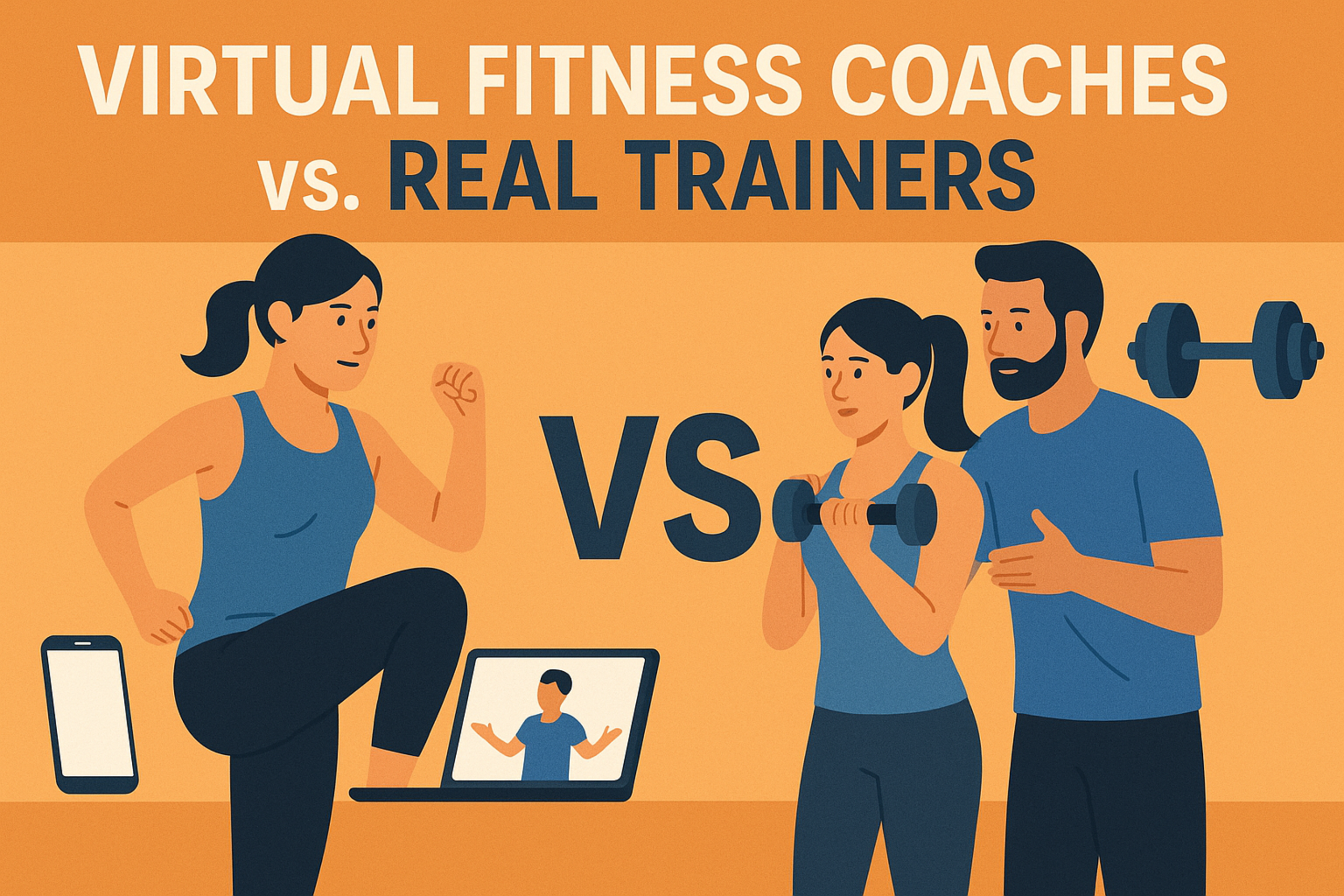In the digital age, getting fit doesn’t necessarily mean hitting the gym anymore. With a few taps on your phone, you can access guided workouts, personalized plans, and motivation from a virtual fitness coach—often for a fraction of the price of a traditional personal trainer.
But how do these two fitness approaches really compare? Who delivers better results, accountability, and long-term success?
Let’s weigh the pros and cons of virtual fitness coaches vs. real-life personal trainers — and crown the winner based on your goals.
💻 What Are Virtual Fitness Coaches?
Virtual fitness coaches are app-based or online trainers that offer:
- Pre-recorded or live workout videos
- Progress tracking tools
- Meal plans and nutrition tips
- AI-generated routines based on your goals
- In some cases, live check-ins or messaging
Platforms like Peloton, Nike Training Club, Fitbod, and Future have made virtual coaching more popular than ever.
🧍♂️ What Do Real Personal Trainers Offer?
In-person trainers provide:
- Customized, real-time feedback
- Physical assistance with posture/form
- Motivation through live interaction
- Adaptable plans based on performance
- Emotional support and accountability
They typically work in gyms, studios, or one-on-one at home — and often have certifications in exercise science or related fields.
⚖️ Virtual Coaches vs. Real Trainers: Side-by-Side Breakdown
| Feature | Virtual Coach | Real Trainer |
|---|---|---|
| 💸 Cost | Affordable/subscription-based ($10–$100/month) | Expensive ($30–$100/session) |
| 🕒 Flexibility | Work out anytime, anywhere | Set schedules required |
| 👀 Form Correction | Limited, often AI-guided or prerecorded | Real-time, personalized correction |
| 📈 Customization | Algorithm-based or general plans | Tailored to your fitness level, injuries, and progress |
| 🤝 Accountability | App reminders and check-ins | Human connection and pressure |
| 📱 Tech Integration | High — wearables, smart tracking, AR workouts | Moderate (depends on trainer’s tools) |
| 🧠 Motivation Style | Self-driven or remote coaching | Direct encouragement and push during hard reps |
🏆 Who Wins?
🎯 For Beginners or Busy Schedules:
Virtual Fitness Coaches are a great low-cost, high-flexibility option. You can explore workouts at your own pace and stay on track using built-in progress trackers.
💪 For Injury Rehab, Special Needs, or Athletes:
Real Trainers offer hands-on support, technique correction, and tailored programs — essential if you’re recovering from injury, training for a specific sport, or need serious accountability.
🧘 For Mindset & Motivation:
Many people thrive on personal connection and face-to-face support, which virtual apps can’t always replicate. A real trainer may be better if motivation is your biggest challenge.
🧩 Hybrid Fitness: The Best of Both Worlds?
Many people are now combining both worlds:
- Using a virtual coach for home workouts and guidance,
- While occasionally seeing a real trainer for technique checks or performance milestones.
This hybrid model offers cost-effective flexibility with personalized care.
✅ Final Thoughts
There’s no one-size-fits-all winner — it depends on your fitness goals, lifestyle, budget, and personality. Virtual coaches are amazing for convenience and consistency, while real trainers excel at precision and human connection.
The real winner? The approach that gets you moving and helps you stay consistent.
💬 Have you trained with a real coach or gone virtual? Share your story in the comments — and let us know who you think wins!


